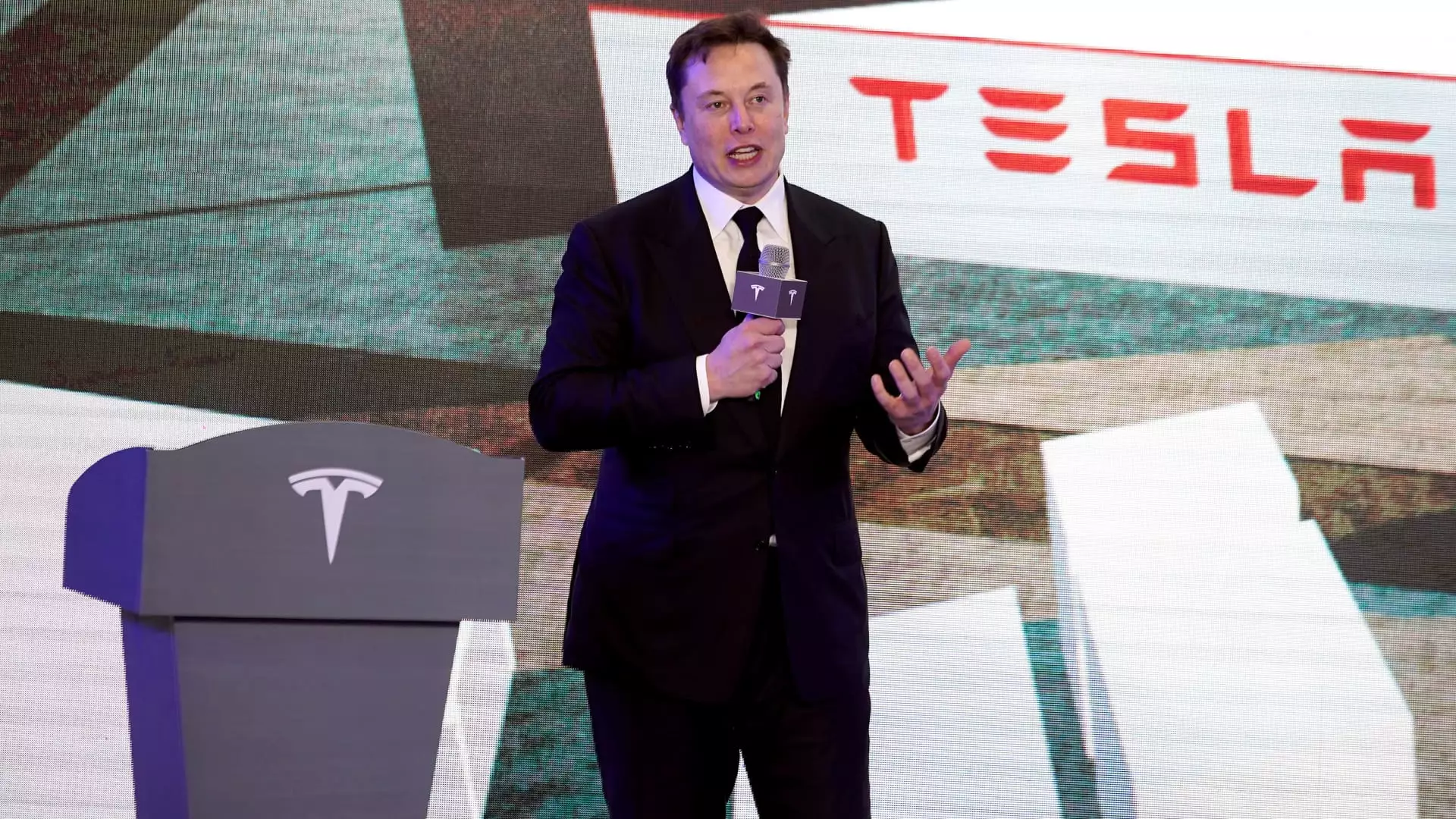In a move that has sparked heated discussions within the financial and legal communities, Tesla, led by the indomitable Elon Musk, has instituted a bylaw that markedly limits shareholders’ ability to hold the company accountable for potential breaches of fiduciary duties. This staggering shift not only underlines the company’s assertive approach to governance but also raises provocative questions about shareholder rights and corporate accountability in a multibillion-dollar landscape. The new bylaw stipulates that any shareholder or group must possess a minimum of 3% of Tesla’s outstanding shares—currently valued at over $30 billion—to instigate or pursue a derivative lawsuit against the company.
For context, Tesla’s market capitalization exceeds $1 trillion, making it one of the most valuable companies in the world. The implications of this bylaw are profound; it effectively places a substantial financial barrier between shareholders and the judicial recourse they might seek when questioning board decisions or executive actions. Critics argue that this move is emblematic of a broader trend where corporations exploit legal frameworks to obstruct transparency and accountability, raising eyebrows about the ethical implications of such maneuvers in an era that increasingly demands corporate responsibility.
Texas Law: A Tool for Limiting Accountability
The new rule aligns with a Texas state law allowing companies to impose limitations on shareholder lawsuits, particularly related to breaches of fiduciary duties by corporate insiders. Ann Lipton, a seasoned corporate law expert teaching at Tulane University, posits that Tesla’s application of this law represents a strategic advantage, effectively dissuading shareholders with modest stakes from challenging the corporate structure. This kind of legal maneuvering unveils a complicated relationship between power and responsibility in the corporate domain.
The importance of this regulation cannot be overstated, especially in light of Tesla’s previous experiences under Delaware law, where a singular shareholder with just nine shares successfully challenged a controversial executive compensation package that was ordered rescinded by the court. The fallout from this lawsuit led to Elon Musk’s assertive declaration against incorporating in Delaware, resulting in Tesla’s subsequent move to Texas amidst heightened scrutiny over corporate governance practices. In essence, this shift illustrates a palpable trend of corporations gravitating towards legal frameworks that favor their management over shareholder interests, creating an environment that could be less conducive to investor safety and corporate ethics.
Institutional Reactions and Future Implications
The legal community’s response to Tesla’s bylaw amendment has been largely critical, discerning this change as a dangerous precedent that may encourage other corporations to adopt similar strategies. By effectively barricading shareholders from launching actions that hold the board accountable, Tesla’s leadership is navigating uncharted waters that may reflect poorly on its long-term reputation and stakeholder trust. In an era where corporate accountability is increasingly scrutinized, Tesla’s course of action may alienate investors looking for transparent governance as they navigate the volatility of stock investments.
Moreover, as Tesla appeals the Tornetta decision concerning Musk’s controversial 2018 compensation package, the interplay between shareholder rights and CEO excess becomes even more pronounced. The ruling by the Delaware Chancery Court, which indicated that the board acted more as a “cheerleader” for Musk than as a governing body, poses fundamental questions regarding the dynamics between executive power and shareholder interests. This tension is likely to persist, especially as corporate governance evolves and influenced shareholder activism gains momentum.
The Road Ahead: Balancing Interests
As the dust settles around this monumental shift in Tesla’s corporate bylaws, stakeholders must consider the long-term ramifications on both the company’s governance structure and investor sentiment. The growing trend of companies adopting legally permissive bylaws to curb shareholder litigation creates a dichotomy between empowering corporations and protecting investor rights. It raises the crucial question: Can companies like Tesla thrive in a fiercely competitive environment if they operate above the scrutiny that comes with accountability?
While Tesla may believe this approach fortifies its operational autonomy, one must wonder if it ultimately undermines investor confidence in a rapidly evolving business paradigm. The unfolding scenario serves as a clarion call for stakeholders to champion a balanced approach that fosters both corporate growth and meticulous oversight of fiduciary responsibilities. As the conversation surrounding this pivotal issue continues, the financial world watches with bated breath, waiting to see if market forces can drive the change necessary to hold powerful corporate entities accountable in an ever-complex financial ecosystem.

